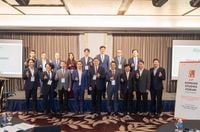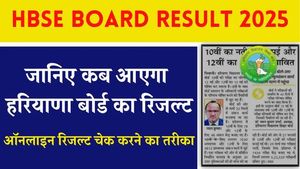On May 9, 2025, the University of Social Sciences and Humanities at Vietnam National University, Hanoi, in collaboration with the Korea Foundation (KF), organized the "Forum on Korean Studies and Science and Technology in Vietnam in the New Era." The forum attracted over 80 delegates from both domestic and international backgrounds, including leading scholars in Korean studies, representatives from prestigious universities, international organizations, management agencies, and businesses.
During the opening remarks, GS.TS Hoang Anh Tuan, the Rector of the University of Social Sciences and Humanities, highlighted that after more than 30 years of growth, the field of Korean studies in Vietnam has achieved significant milestones. He noted that dozens of generations of students have been trained in this field, contributing hundreds of research projects focused on Korea. This has played a vital role in fostering understanding and cooperation between the peoples of Vietnam and South Korea.
In 2022, Vietnam and South Korea elevated their relationship to a comprehensive strategic partnership, which has made cooperation in education and research a strategic priority. Hoang emphasized that Korean studies is now positioned as a leading discipline within the national academic community, particularly at the University of Social Sciences and Humanities.
According to Hoang, the current era marks a new phase of development characterized by comprehensive strategic partnerships between Vietnam and South Korea, alongside a significant rise in artificial intelligence and new societal needs. In this context, listening to insights from experts and managers, both domestic and international, is essential for innovating training methods, especially in Korean studies in Vietnam.
The forum aims to facilitate exchanges between Vietnamese and Korean representatives to broaden the scope of Korean studies in Vietnam, with a particular focus on discussing scientific and technological cooperation as well as interdisciplinary fields. It is also intended to establish a tighter collaborative network among training institutions, businesses, and government agencies of both countries in the realms of training and scientific research.
Pham Quang Hung, the Director of the Department of Science, Technology and Information at the Ministry of Education and Training, emphasized that the diverse participation of experts from both countries creates a multidimensional exchange space, fostering new collaborative initiatives that effectively link education, research, and innovation. Since upgrading their partnership, education and research cooperation has become a strategic pillar prioritized by both nations.
The morning session of the forum featured a discussion on "Expanding Korean Studies in Vietnam and Orienting a New Vision." Experts pointed out that Korean studies, which previously focused on limited areas such as humanities, social sciences, and the Korean language, has recently expanded its scope due to the rise of interdisciplinary research and the inclusion of STEM fields, media, and science and technology.
Over the past 30 years, Korean language education and Korean studies in Vietnam have made significant strides. However, the country faces challenges such as resource dispersion, the need for balanced development between Korean language studies and Korean studies, and the necessity for collaborative initiatives. Additionally, neighboring Laos is actively seeking measures to meet the growing demand for Korean studies research.
The discussion also explored how modern Korean studies can adapt to new academic trends and global realities, while identifying solutions to enhance the synergy for the development of Korean studies in Vietnam. This includes expanding the research orientation of Korean studies.
In the afternoon, the forum shifted focus to the topic of "Strengthening Partnerships between Businesses, Government, and Schools in Training." As Vietnam rapidly grows in the era of the Fourth Industrial Revolution, it is making progress in innovation and technology development across various fields, supported by government encouragement and private sector innovation.
In this context, the importance of nurturing human resources is paramount, especially in the face of rapid digital transformation and technological change. Human resources are becoming an indispensable asset for future growth. By enhancing higher education partnerships between South Korea and Vietnam, speakers discussed how to effectively leverage South Korea's economic development experience and strengths in essential areas of the Fourth Industrial Revolution, such as digital technology, biotechnology, and climate change.
This collaboration aims to bolster high-quality education and contribute to training human resources for sustainable socio-economic infrastructure development through partnerships between industry, government, and educational institutions.
The "Forum on Korean Studies and Science and Technology in Vietnam in the New Era" has successfully outlined significant outcomes, contributing to the direction of Korean studies development in Vietnam for the new phase. Stakeholders expressed hopes that this would mark the beginning of building a collaborative network among researchers, educational institutions, businesses, and government agencies, laying the groundwork for sustainable development of Korean studies in Vietnam.




